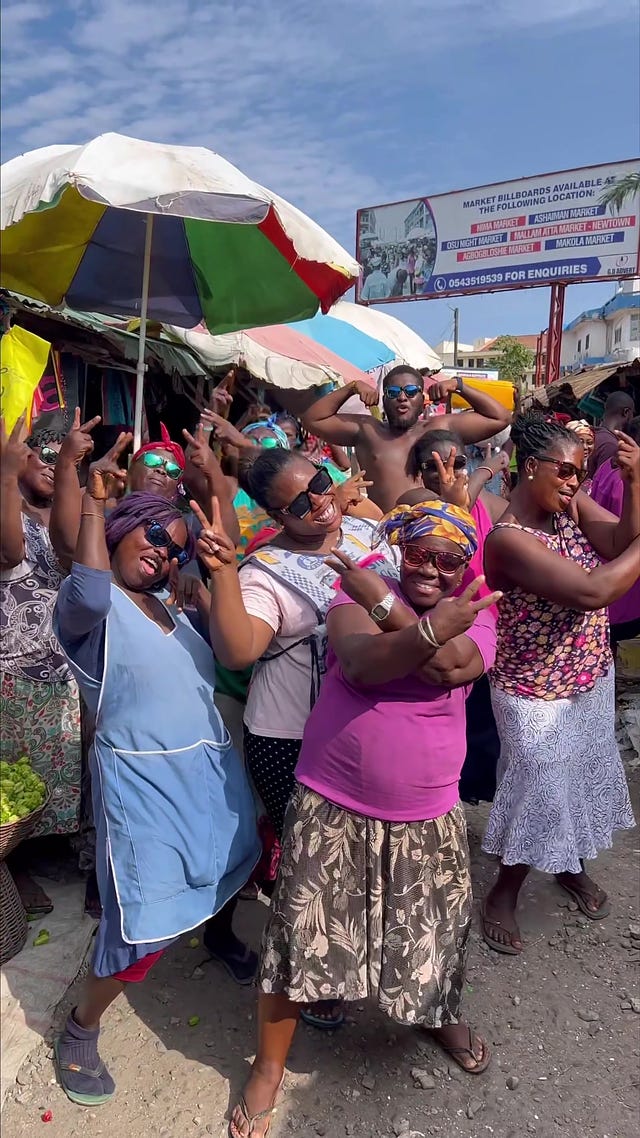🔅 How the West Exported Unhealthy Eating Habits to Africa, Kenya Wants To Borrow $1B to Finish Road Projects
Plus, 40 Arrested in Crackdown on Uganda's Opposition & A Ghanaian Dancer Goes Viral
Photo of the day
Sunset, Senegal
Markets — Year to Date:
🟢 Nigerian SE: 66,454.57 (+26.66%)
🔴 Johannesburg SE: 71,657.25 (-1.90%)
🔴 Ghana SE: 3,139.99 (+28.48%)
🔴 Nairobi SE: 93.49 (-26.66%)
🔴 US S&P 500: 4,308.50 (+12.67%)
🟢 Shanghai Composite: 3,110.48 (-0.19%)
*Data accurate as of the close of markets across the continent
Brief & Bright: Africa's Top Five
How the West Exported Unhealthy Eating Habits to Africa
Snacking has gone global—and not in a good way. In the last two decades, sales of ultra-processed foods (UPFs) have doubled in developing countries, which food companies started targeting because they had saturated the markets in the Western world (in the US, 57% of the country's diet is made up of UPFs). The consequences of this “snack attack”? An increase in non-communicable diseases, especially in children, and a rise in cancers in people under 50. The worst affected regions are sub-Saharan Africa and Asia, where the double burden of malnutrition (overlapping undernutrition and obesity) has grown the fastest. And, with the distinction between a snack and a full meal collapsing, UPFs have become a practical and affordable daily option for many. In Kenya's capital city, for example, evening rush hour is peak snack time, with people turning to mandazi and corn puffs for an energy boost because, well, snacks have become part of everyday life. Even at schools, “closing day parties” aren’t complete without them. “You have to get them, especially when you have children. It’s a crime to go home without a snack.”
A Ghanaian Dancer Goes Viral And Gets Billboard Love from Burna Boy
Ghanaian dancer and social media star Ernest Raja Nettey, AKA Official Starter, was just living his best life filming himself dancing with market women in Accra when his video went viral. It was so viral, in fact, that the video caught the attention of Nigerian megastar Burna Boy, who loved it so much he bought a billboard at the market featuring Nettey and the women dancing. Talk about a dance collab! The women he danced with now brag to their customers about their billboard and the newfound fame.
Uganda's: 40 Arrested in Crackdown on Opposition Supporters
Uganda's government is not messing around when it comes to shutting down opposition leader Bobi Wine. Upon his return from a trip to North America, he was whisked by security officials from the tarmac at the airport to his home, where he has been placed under house arrest. His supporters, planning a massive march from the airport in his honour, were also targeted, with 40 people arrested for "inciting violence." This isn't the first time Wine has faced government opposition—last year, Human Rights Watch accused security forces of torturing hundreds of his supporters. Observers say that these actions reflect a decline in democracy in the East African country, but the government says it is protecting the country's peace. Bobi Wine ran against President Yoweri Museveni in the last election, but lost amid accusations of vote rigging. Museveni has been in power for 37 years.
Kenya To Request for an Extra $1 Billion Loan from China

Kenya's President William Ruto is heading to China later this month with a big ask: a $1 billion loan to finish stalled road construction projects. He's also hoping to negotiate more extended repayment periods for existing loans. This is a bit of a turnaround for Ruto, whose coalition criticized his predecessor for borrowing too much from China - the loans, which totalled over $8 billion, were used for infrastructure projects, including roads. However, some road construction came to a halt when contractors put down their tools and left because they were not being paid. Ruto now hopes that a billion-dollar boost will help get things moving again. And let's be real, who hasn't tried negotiating a little extra cash and some extra time to repay a loan?
Chocolate Lovers Beware: Cocoa Shortage on the Horizon

Brace yourselves, chocoholics. The world's top grower of cocoa, Ivory Coast, expects a 28.5% drop in cocoa volumes arriving at its ports in the first three months of the 2023/2024 season. Blame it on the weather—erratic rainfall has led to poor growing conditions and smaller cocoa harvests. Even the tiny flowers that turn into cocoa pods after 22 weeks couldn't handle the heavy rains, and a fungal disease attacked the already-developed pods. Cocoa requires steady spells of rain and sunshine, and unfortunately, the West African region where top growers are located is experiencing anything but. This includes Ghana, Cameroon, and Nigeria, which together supply 70% of the world's cocoa. The looming threat of the El Niño weather pattern makes the outlook even worse in the medium term. Cocoa prices have risen to their highest levels since 1977 due to poor harvest forecasts.
Food for Thought
“Love, like rain, does not choose the grass on which it falls.”
— South African Proverb.







